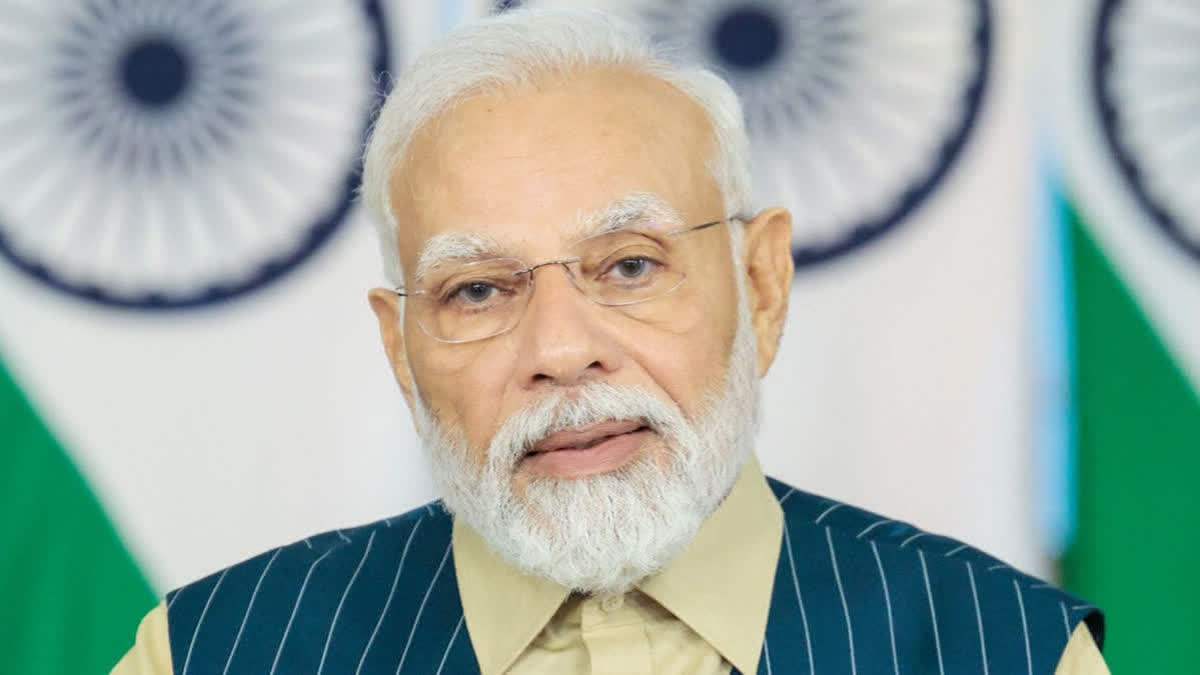New Delhi: Prime Minister Narendra Modi has asserted that India achieved the extraordinary during its G20 presidency as it revitalised multilateralism, amplified the voice of the Global South, championed development, and fought for the empowerment of women everywhere. With Brazil set to take over the presidency from December 1, Modi highlighted the elite group's journey under India and expressed confidence that his country will hand over the charge with the conviction that our collective steps for people, planet, peace, and prosperity, will resonate for years to come.
In an opinion piece which appeared in several newspapers on Thursday, Modi said India's approach was defined by being "inclusive, ambitious, action-oriented, and decisive" and the New Delhi Leaders' Declaration (NDLD), unanimously adopted by all G20 members, is testimony to our commitment to deliver on these principles.
Noting that it has been 365 days since India took the Chair, he said the global landscape grappled with multifaceted challenges: recovery from the COVID-19 pandemic, looming climate threats, financial instability, and debt distress in developing nations, amid declining multilateralism at that point of time.
"It is a moment to reflect, recommit, and rejuvenate the spirit of Vasudhaiva Kutumbakam 'One Earth, One Family, One Future'," he said on the event of India passing the baton to Brazil. Recalling the time last year when India took over, he said amidst conflicts and competition, development cooperation suffered, impeding progress, he said.
"Assuming the G20 chair, India sought to offer the world an alternative to the status quo, a shift from a GDP-centric to human-centric progress. India aimed to remind the world of what unites us, rather than what divides us," he said. Finally, he added, the global conversation had to evolve and the interests of the few had to give way to the aspirations of the many. This required a fundamental reform of multilateralism, he said.
The first-of-its-kind 'Voice of the Global South Summit', convened by India in two editions, heralded a new dawn for multilateralism, Modi said, asserting that India mainstreamed the Global South's concerns in the international discourse and has ushered in an era where developing countries take their rightful place in shaping the global narrative.
India's domestic approach to G20 was also marked by inclusivity, making it a "People's Presidency" that befits the world's largest democracy, he said. At the critical midpoint of the 2030 agenda, India delivered the G20 2023 Action Plan to Accelerate Progress on the Sustainable Development Goals (SDGs), taking a cross-cutting, action-oriented approach to interconnected issues, including health, education, gender equality and environmental sustainability, he said.
A key area driving this progress is the robust Digital Public Infrastructure (DPI), Modi added. He said, "Through the G20, we successfully completed the Digital Public Infrastructure Repository, a significant stride in global technological collaboration. This repository, featuring over 50 DPIs from 16 countries, will help the Global South build, adopt, and scale DPI to unlock the power of inclusive growth."
For our One Earth, India introduced ambitious and inclusive aims to create urgent, lasting, and equitable change, he said. The leaders' declaration underscores our commitment to climate justice and equity, urging substantial financial and technological support from the Global North, he said, noting that for the first time, there was a recognition of the quantum jump needed in the magnitude of development financing, moving from billions to trillions of dollars.
The G20 acknowledged that developing countries required USD 5.9 trillion to fulfil their Nationally Determined Contributions (NDCs) by 2030, he said. Given the monumental resources required, the G20 emphasised the importance of better, larger, and more effective Multilateral Development Banks, he noted.
"Concurrently, India is taking a leading role in UN reforms, especially in the restructuring of principal organs like the UN Security Council, that will ensure a more equitable global order," the prime minister said. Gender equality took centre stage, culminating in the formation of a dedicated Working Group on the Empowerment of Women next year, he said.
"India's Women's Reservation Bill 2023, reserving one-third of India's Parliament and state legislative assembly seats for women, epitomises our commitment to women-led development," he said. During its G20 presidency, India led deliberations on geopolitical issues and their impact on economic growth and development, he said.
"Terrorism and the senseless killing of civilians are unacceptable, and we must address them with a policy of zero tolerance. We must embody humanitarianism over hostility and reiterate that this is not an era of war," he said. (PTI)



